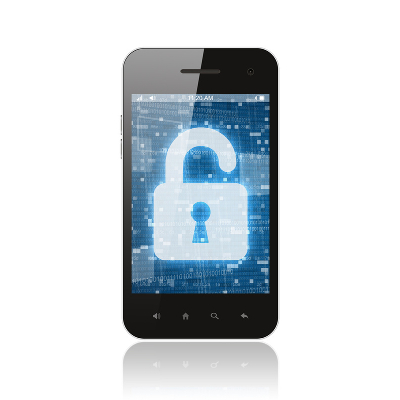Have you ever had your smartphone stolen? If so, you’ll understand how frustrating it is, as well as appreciating that you might be exposed to various risks. You can take some steps to stop that happening, so let’s look at some prevention strategies and, if you do become a victim of smartphone theft, the things you should do to protect your data.
Over the years, smartphone theft has kept rising. It’s partly because they’re not that difficult to steal. A few years ago, the Washington DC police department estimated that smartphones were involved in almost 40% of thefts in major US cities. There have been reports of people having phones snatched while in the mid-conversation, by thieves on bicycles who speedily make their escape. There have also been incidents where guns were used to make people hand over their phones.
The Security Risks
If your phone is stolen, the problem isn’t just that you can’t use it. It’s probably full of personal information that you don’t want to fall into the wrong hands. That data might include your personal data, financial information, photos, appointments, access to social media and other accounts, and more. If your smartphone is used for work, then your organization’s data might also be accessible. Business owners whose employees use mobile devices to access the company network should be alert to the serious problems this can cause, because your business data and client information is potentially at risk.
Protecting Against Smartphone Theft
There are various steps you can take to avoid falling victim to phone theft. Here are some things you should consider, both to prevent theft and to protect yourself against the consequences.
- • Be alert. Someone could be targeting you at any time. Don’t assume you’re in a safe place, where no crooks are operating. The less visible your phone is, the better, so don’t draw attention to it. If you have to use it in public, don’t leave it on a table afterwards, or continue to walk with it in your hand. It’s safer out of sight. Be wary of strangers asking to borrow it to make a call. If it’s an emergency, call the relevant service yourself.
- • Passwords are essential to protect your data. Everyone should protect their smartphone with a password, PIN or other screen lock method. Changing it regularly will enhance your protection. This is a simple way to make sure that nobody has free access to it.
- • Use security apps. It’s easy to find an app that will keep your phone secure, and free versions are available for basic protection. Apps are available that will allow you to track and lock your phone, as well as wipe information remotely if necessary. Remember the app has to be installed first! The ‘Find My iPhone’ app is one example of the protection available. If your phone is stolen, you can log into your iCloud account, track the phone, lock it, wipe it, play a sound, or even send a message for display on the lock screen.
- • Remember to backup. Even if you don’t have sensitive data on your phone, nobody wants to lose their photos, contacts and similar. With a backup that’s stored on an external hard drive or on your computer, you can always get the material back.
- • Insure your phone. It’s not always going to be possible to get your phone back if it’s stolen. If you’re insured, at least you know you’ll be able to replace it.
Immediate Action Required
If your smartphone is stolen, you need to notify your service provider immediately, as well as the police. Your service provider should be able to shut the phone down so that it can’t be used to make expensive calls or for scamming and spamming people in your contacts list. You should also be exempt from any charges the thief does run up. If you plan to claim on insurance then you may need to have a police incident number or similar.
If you use your phone for work purposes then you’ll also need to alert your employer and/or IT department that there’s a potential data security problem. It might be necessary to wipe the phone remotely, to protect against any company data on the phone being used by the thief. If there is a possibility that your phone could be used to access customer information, the problem could be serious. Some regions and sectors have regulations requiring that customers are notified of any stolen data or potential breach of confidentiality.
It can a nightmare if your phone is stolen. At the very least it’s a serious nuisance. Make sure you protect your data. You never know where it might end up. The sooner you act after your phone is stolen, the better.
Have you been a victim of smartphone theft? If so, how did you react? Do you have any tips to share on keeping a smartphone secure? Let us know!

